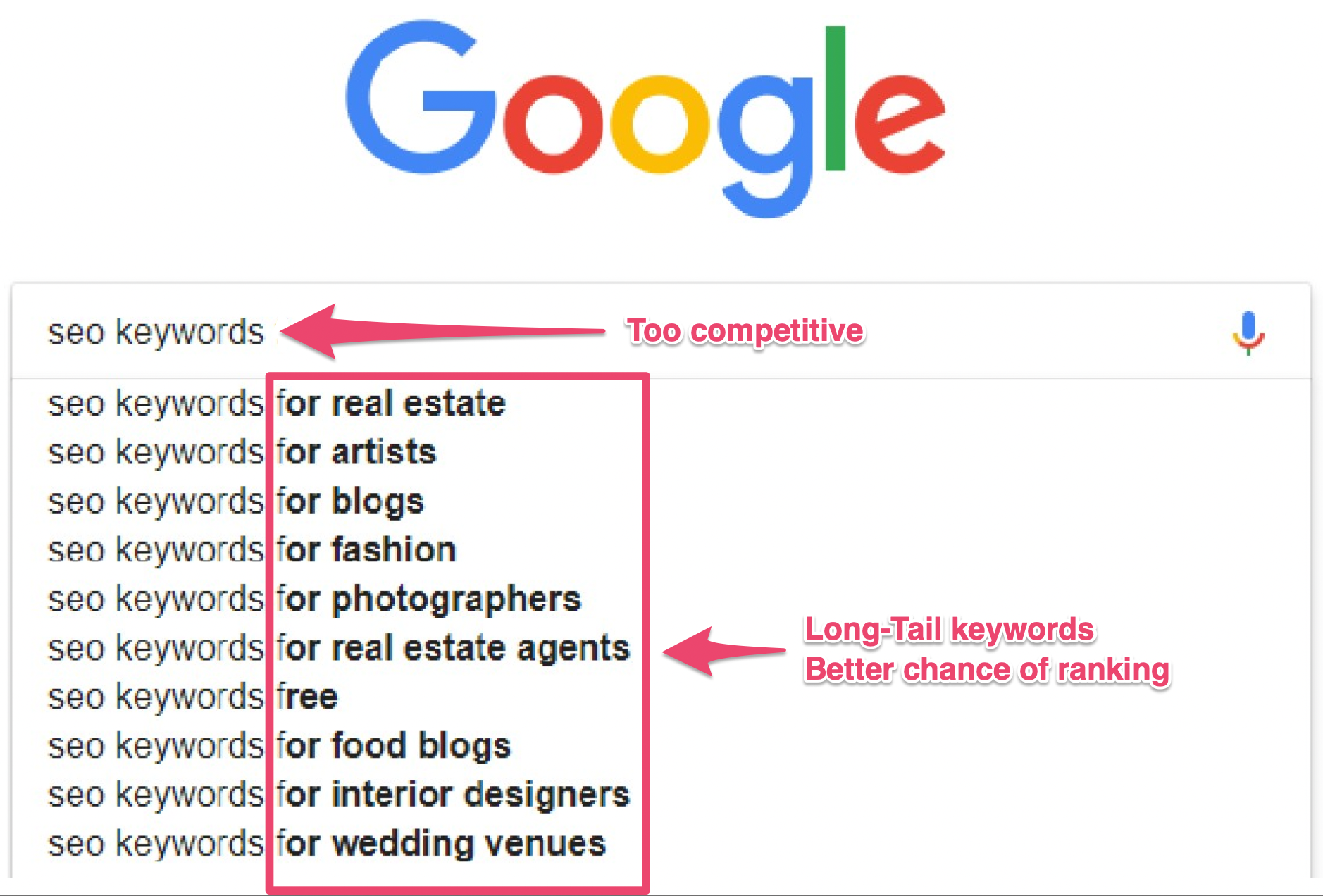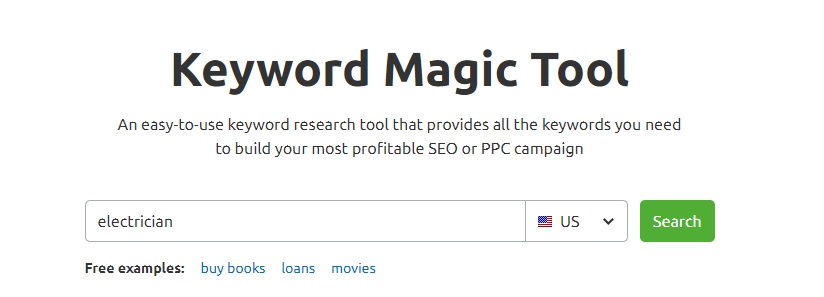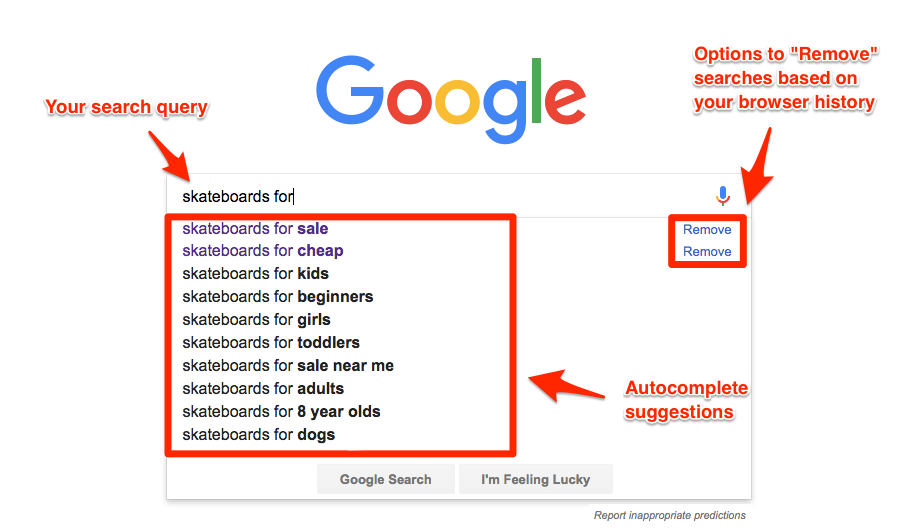Effective keyword research is important for any successful SEO strategy, especially when targeting a specific niche. Niche keywords help you reach your target audience more precisely, driving targeted traffic to your website.
This guide will walk you through the process of researching keywords for your niche, providing valuable insights and practical tips to improve your marketing strategy.
What Are Niche Keywords?

Niche keywords are specific keywords or phrases that cater to a particular area or industry. Unlike broad keywords, niche keywords have lower search volume but often lead to higher conversion rates due to their relevance to a specific audience.
Why Are Niche Keywords Important to Your Business?

Niche keywords are vital for businesses looking to stand out in competitive markets. They help you:
- Reach a targeted audience
- Improve search engine rankings for specific queries
- Increase conversion rates
- Reduce competition for search results
- Enhance your content creation strategy
Where Do You Use Niche Keywords?

Niche keywords can be included into various aspects of your online presence:
- Website content
- Blog posts
- Meta titles and descriptions
- Anchor text for internal and external links
- Social media posts
- PPC campaigns
How to Research Keywords For a Niche?

Effective niche keyword research is a step-by-step method that helps you find hidden chances in your target market. You need to truly understand your audience. You also need careful market analysis and smart use of keyword research tools.
Following the steps below, you can discover important search terms. These terms will bring in the right visitors, engage your ideal customers, and help your business succeed more.
Determine Your Target Audience
Understanding your target audience is very important for good keyword research. When you know who your audience is, you can create a keyword plan that fits what they are looking for. Use tools like keyword planners to make a list of possible keywords that will appeal to your specific audience. Look at details like age, interests, and behavior to find the best keywords for your niche. This focused approach makes sure your content finds the right people and brings quality visitors to your site.
Research The Market
Thorough market research is very important for finding useful keyword insights. You need to understand what your target market is interested in, what trends they follow, and how they search online. Start by looking at industry magazines, online forums, and groups related to your area.
Pay attention to topics that people talk about a lot, new trends, and questions that keep coming up. Check what your competitors are doing. What keywords are they using? Are there gaps or chances for you to take advantage of?
Evaluate Your Competitor’s
While you should not worry too much about your competitors, it’s good to learn from what they do, especially when it comes to keywords. First, find your top competitors. These are the ones selling similar products or services to the same audience.
Tools like Semrush’s Keyword Gap can help a lot. By looking at your competitors’ keyword rankings, you can find good chances for yourself. Check for keyword gaps where they are doing well with words you haven’t used yet. These gaps can lead to new traffic. This can help you get some of their search visibility and bring in leads they might be missing. Look for the best niche keywords that they are using.
Browse Online Communities
Online communities are great sources for keyword ideas. Websites like Reddit, Quora, niche forums, and social media groups show what your target audience thinks. You can explore talks related to your industry or niche. Look closely at the words people use, the questions they ask, and the problems they want to solve.
These platforms often show long-tail keywords and phrases that you might not find with regular keyword research. Join these communities in a real way, share helpful ideas, and write down common themes, questions, and related keywords that can help your keyword strategy. Talking directly with your target audience gives you important clues about their language and search habits.
Compile Preliminary Keywords and Research Them
By now, you should have a good list of preliminary keywords from your audience research, market study, and checking out competitors. Now, it’s time to clean up this keyword list and do more research to find the best terms for your SEO and marketing.
Sort your keywords into relevant groups and remove any that don’t fit or are repeated. Use a keyword research tool like Semrush or Ahrefs to look at each keyword and check some key details:
- Search Volume: How many people search for this keyword each month?
- Keyword Difficulty: How hard will it be to rank for this keyword?
- Relevance: How well does this keyword match your content and target audience?
Top Tools For Niche Keyword Research

A good keyword research tool can help you find new chances and improve your content plans. These tools make research easier. They give you useful data on search volume, how hard a keyword is, and what your competitors are doing.
By finding new keywords and checking search trends and competitor methods, these tools let you make smart choices. This way, you can stay ahead in the digital world. Let’s look at some of the best tools for niche keyword research.
Keyword Magic Tool

Semrush’s Keyword Magic Tool lives up to its name. It has many features to help you find useful keyword suggestions. You can enter a seed keyword related to your field. Then, it quickly gives you a long list of related words. This list includes important information like search volume, keyword difficulty, and competitive analysis.
A big benefit of the Keyword Magic Tool is that it groups keyword suggestions into useful categories. This makes it simple to find specific niches and chances in your larger market. By doing this, you can sharpen your content strategy. You can focus on specific words that have less competition and are more important to your target audience.
Keyword Gap

Semrush’s Keyword Gap tool is very helpful for finding important keyword opportunities that your competitors might be using. It lets you compare your website’s keyword rankings with those of your main competitors. This way, you can see where you might be missing out and make the most of those chances.
The competitor analysis feature gives you great info on the keywords your competitors rank for that you do not. This can help you find new chances and improve your content plan. By using this data, you can focus on the best keywords. This ensures that your work targets the most effective terms for getting more visibility and beating the competition.
Keyword Planner

The Keyword Planner, created by Google, is a popular tool for SEO and PPC experts. It is mainly made for people who use Google Ads, but it also helps with finding keywords for free searches.
You can use the Keyword Planner by entering a seed keyword or a group of keywords that relate to your area of focus. It gives you information about average monthly searches, the level of competition, and how much to bid for ads. Even though most of the information is for paid ads, it can still show you search volume trends. This helps you choose keywords that have good search potential.
Use Google Autocomplete Feature

Use Google’s autocomplete feature to find keyword ideas for your niche.
This tool shows suggestions in real-time based on what people search for often. It helps you see what your target audience is looking for. By checking these suggestions, you can find good keywords to add to your content or marketing strategy.
Using Google autocomplete can help you grow your list of keywords. This can improve your search engine optimization and bring more targeted traffic to your website. Start by typing your seed keyword and look at the autocomplete suggestions from Google.
Google Search Console

Speaking of Google Search Console, this free tool is very useful for anyone with a website or a business. While it is not just a keyword research tool, Google Search Console gives you a lot of performance data and search analytics that can help you with your keyword planning.
When you connect your website to Google Search Console, you can see important details about how your site shows in Google Search results. You can find out which keywords bring visitors to your site, their average position in search results, and the click-through rate (CTR) for each keyword. This information helps you see ways to improve your current content, so you can get more visibility and attract more organic traffic.
WordTracker
![]()
Wordtracker is a special tool for keyword research. It helps find important search terms for your website and content marketing. This tool is better than free options. It gives accurate data on search volume, competition, and keyword trends.
One of the best things about Wordtracker is that it offers long-tail keyword suggestions using a seed keyword. This helps you find chances that have less competition. Wordtracker also gives keyword effectiveness scores. These scores look at search volume, competition, and relevance. This helps you choose the right keywords for the best results.
Analyze the SERPs

Analyzing the SERPs (Search Engine Results Pages) is important. It helps you see the competition for your chosen keywords. You need to look at the top-ranking pages for a specific keyword. Find their strengths and weaknesses. Look for ways to rank higher than them.
Begin by searching your target keyword on Google. Check the top 10 results. Things like domain authority, content quality, backlink profile, and user experience are very important for ranking. By knowing what works for your competitors, you can adjust your content and SEO strategy. This way, you can outshine them and get more organic traffic.
FAQ’s:
What is the Difference Between Niche Keywords and Broad Keywords?
Niche keywords are specific to a particular industry or topic, while broad keywords have a wider appeal. Niche keywords typically have lower search volume but higher conversion rates due to their relevance to a specific audience.
How Many Niche Keywords Should I Target?
The number of niche keywords to target depends on your business goals and resources. Start with a manageable list of 10-20 keywords and expand as you create more content and improve your SEO strategy.
How Often Should I Conduct Niche Keyword Research?
Conduct niche keyword research regularly, ideally every 3-6 months, to stay up-to-date with changing search trends and identify new opportunities in your industry.
Can Niche Keywords Improve My Local SEO?
Yes, niche keywords can significantly improve your local SEO efforts. By targeting location-specific niche keywords, you can attract more targeted traffic from your local area and improve your visibility in local search results.
Conclusion
Researching keywords for a niche is an essential step in developing an effective SEO strategy.
Following the steps outlined in this guide and using the recommended keyword tools, you can uncover valuable list of niche keywords that will help you reach your target audience and drive targeted traffic to your website.
Remember to regularly review and update your keyword strategy to stay ahead of the competition and maintain your search engine rankings.
At VH-info, we specialize in helping SaaS companies improve their search engine optimization through effective link-building strategies. Our team of experts can assist you in implementing a comprehensive keyword research and link-building plan tailored to your specific niche.
Contact us today to learn how we can help you boost your website’s visibility and drive more targeted traffic to your SaaS product.

